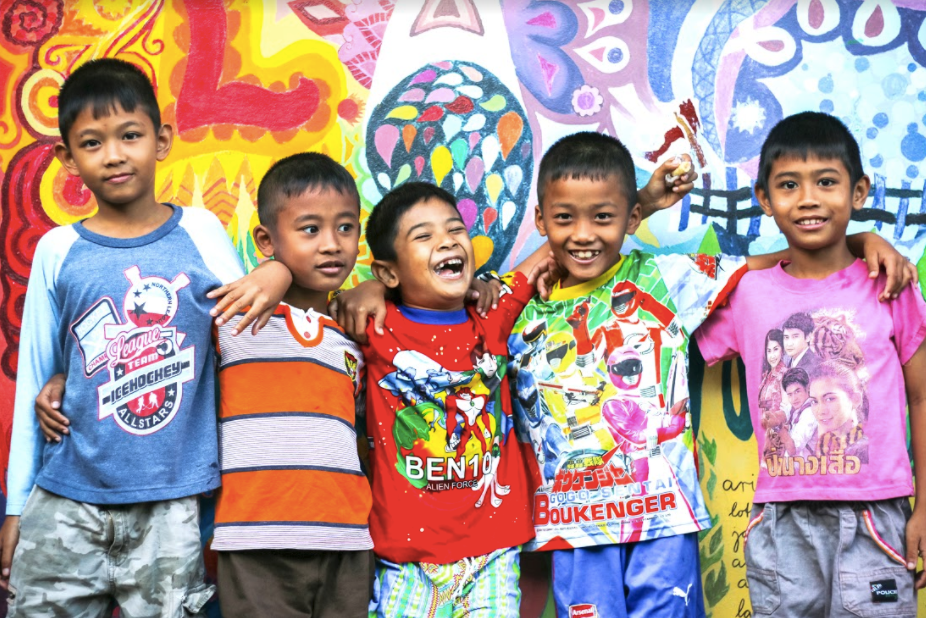Real Life Phuket, August 2017
This post is written by Maciek Klimowicz and published on Real Life Phuket.
There are many things you can expect to find in a thick jungle of Thailand’s Phang Nga province. Wild animals, rare plants, scenic waterfalls. What you probably don’t expect to find is a world-class school at the forefront of what might be a revolution in the way we think about education. Yet there it is, it’s called Yaowawit.
Yaowawit school’s location in the lush greenery of Phang Nga’s jungle, near the village of Kapong, isn’t the only extraordinary thing about it. In fact, there is so much to put one in awe here, that it’s difficult to decide where to begin the list. So let’s maybe start with the first impressions.
When you hear the term “jungle school” or “village school”, an image starts forming in your head, and maybe not a flattering one. Forget it, wipe it out of your mind, otherwise, you’re in for a shock. Yaowawit looks nothing like that school you’ve just imagined, but it also looks nothing like any other, more traditional school in Thailand. It’s not a concrete box divided into classrooms and then stuffed with students, but more of an educational complex, sprawling a lush green hill and reminiscent of a small university campus. The small, neat, brick-coloured buildings lining its main walkway, look inviting, even friendly, like home.
Or better – homes, with each building featuring a classroom on the gourd floor and a dormitory with four to sixteen beds above. And each looked after by a dedicated mentor, who takes care of the children during the evenings. That’s because Yaowawit is a boarding school and a shelter for 140 children – many of them orphans, coming from dysfunctional families, affected by abuse and neglect.
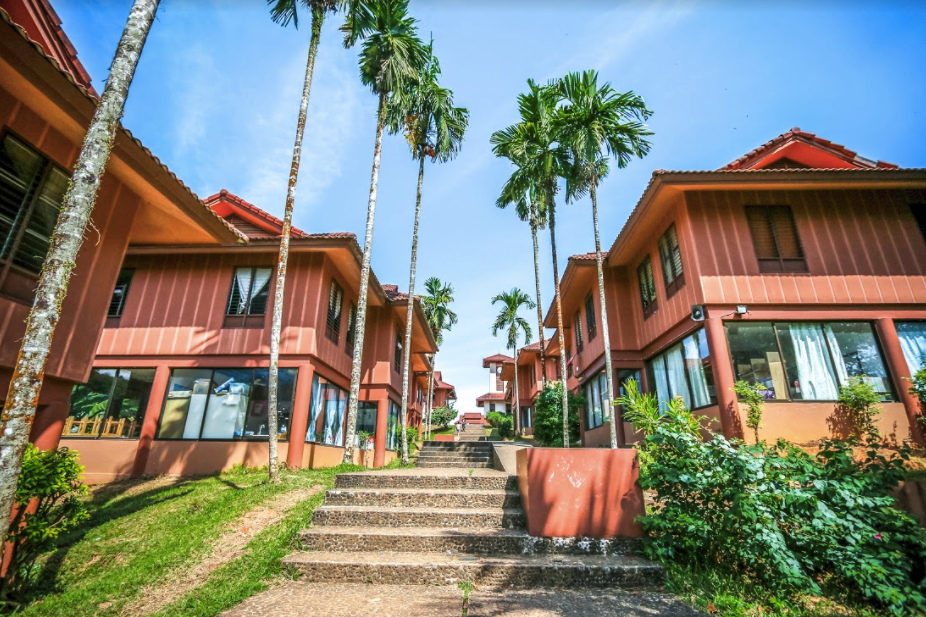
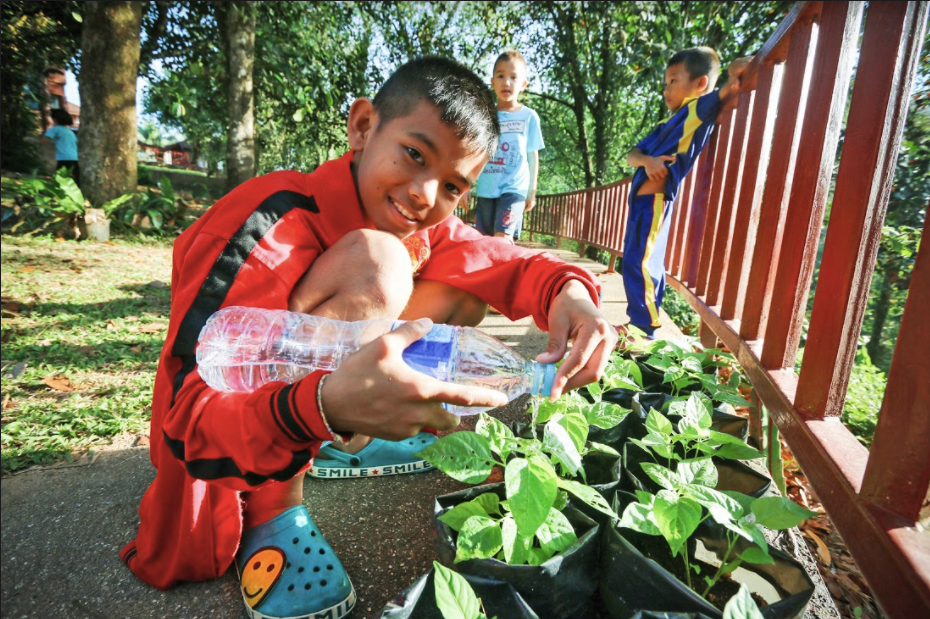
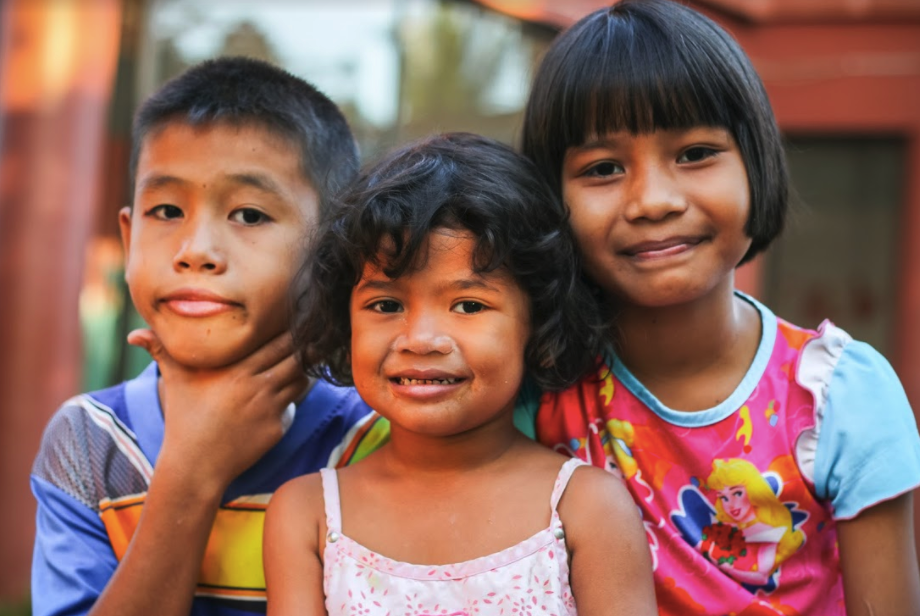
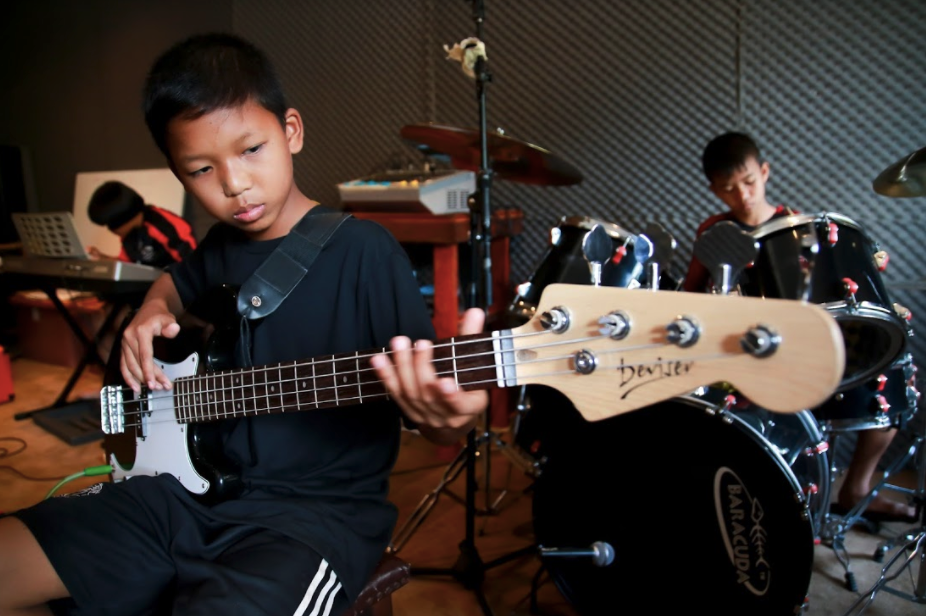
And yet again you will have to challenge the images that form in your mind. Because Yaowawit is nothing like the orphanage you’ve just thought about. In fact, it’s a world-class educational facility. How?
Yaowawit was founded by Philipp Graf von Hardenberg – the President & CEO of Thanyapura and a persona well known in Phuket, and as with many such project in the region, what spurred the idea was the 2004 Indian Ocean tsunami. Having seen the tragic state of parts of the Andaman coast after the tsunami, Philipp decided to help, but help in a long term. His idea was to fund a school that would help children to be able to break out of the vicious circle of poverty by providing life-skills and school education; one run by Thais and generating its own income through several social enterprise businesses. To that goal, he managed to gain support of a fellow aristocrat, Princess Maha Chakri Sirindhorn, who officially opened Yaowawit School in 2006 for the first 80 children.
12 years later, the school has grown bigger and stronger and the Princess has just visited it for the fourth time, this time to launch Southeast Asia’s first Pre-Vocational Education program. With it the school formalizes what it has been engaged in since the very beginning – teaching life skills. Having taught children skills such as self-consciousness, team work, organization, time-management and communication since its formation, Yaowawit’s new Pre-Vocational Academies combine those life skills with academics and invite business figures to share their knowledge with the children as part of the school’s mission to prepare them for their future lives.
And while Yaowawit’s hospitality academy, which opened a year and a half ago, focuses hospitality, the vision for the school doesn’t end there – future plans include a Pre-Vocational Agriculture Academy and transforming the school’s farm into a farming and nature park for local farmers, students and visitors to learn about sustainable agriculture. And judging from the school’s success so far, it’s definitely happening.
Yaowawit is a game changer and a mind changer. It will change your perception of a rural Thai school the moment you set foot on its premises; it changes the approach to education, replacing rote learning with experience based, inspirational schooling, and most importantly, it changes the lives of children, empowering them to take matters into their own hands, and make a change.
